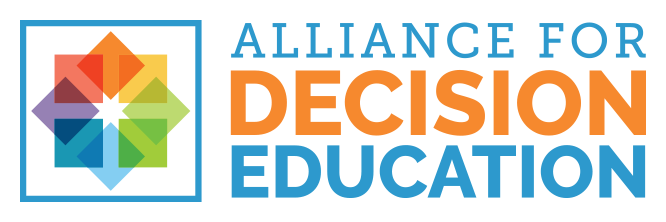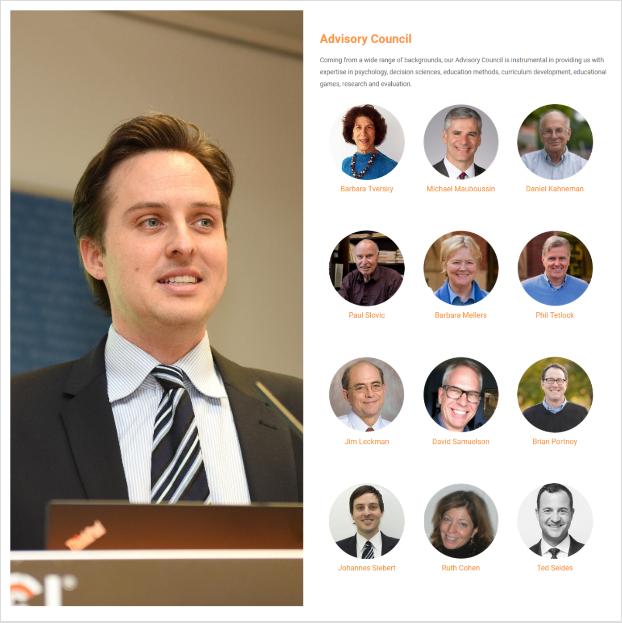
Renowned Alliance for Decision Education around Nobel Laureate Daniel Kahneman and Richard Thaler accepts Johannes Siebert into Advisory Council | Recognition for research achievements in the area of individual and organizational decision behavior.
A high-ranking recognition has recently been announced at the Entrepreneurial School®: Johannes Siebert, Professor at the MCI Department of Business and Management and an internationally recognized expert in the study of individual and organizational decision-making behavior, has been accepted into the top-class advisory board of the renowned Alliance for Decision Education around Nobel Prize winner Daniel Kahneman. With his expertise, he will contribute to helping children and young people learn to make conscious and well-considered decisions away from the usual “try & error”.
The inclusion of Johannes Siebert in the Advisory Council of the Alliance for Decision Education will help to further increase the international networking and visibility of the MCI. Workshops on the subject of decision making for schoolchildren, which Johannes Siebert is developing for Bavaria as part of a research project, are also to be offered in Tyrol and Austria in the medium term.
Making decisions is perceived as a complex task by many individuals and organizations. Reasons for this are (i) that decision-making involves a certain amount of cognitive effort, (ii) the decision-making situations are not fully understood, or (iii) simply no methods for solving decision-making problems are known or mastered.
However, only by (pro)actively making decisions is it possible to influence what is important. Otherwise, neither an individual decision-maker nor an organization can successfully implement its visions in the long term. Against this background, it is astonishing that many individuals and organizations have only a very limited interest in proactive decision-making and often have only limited skills and competences in making decisions.
As a result, many individuals and organizations make suboptimal decisions and then have to deal with the consequences. These consequences can be particularly significant for children and young people and can accompany them throughout their lives. For example, the bad decision to get into a car whose driver, contrary to the agreement, has drunk alcohol can change a person’s life for the worse. The same applies to the positive. Young people can lay the foundation for their future life through their decisions. In school, a lot of information relevant to decision-making is conveyed, but pupils are not shown how decisions are (should be) made. Therefore most young people make decisions according to the try and error principle.
This is exactly where the Alliance for Decision Education comes in. It is a renowned American non-profit organization with the vision that better decisions lead to better lives and ultimately to a better society. To this end, they organize various courses in which children and young people learn to make more conscious decisions. Besides, they interact with political decision-makers at all levels to anchor decision making in the educational canon in the long term. These projects are strategically supported by the so-called Advisory Council, which is made up of leading experts from the fields of behavioral economics, decision theory, psychology, risk management, and child psychiatry. Many students in the fields of business administration and economics, for example, are certainly familiar with the work of Nobel Prize winner Daniel Kahneman or Paul Slovic.
Johannes Siebert is a Professor at the Department of Economics and Management at MCI | The Entrepreneurial School®. He habilitated at the University of Bayreuth, where he also works as a private lecturer, in the fields of Behavioral Operations Research and Decision Analysis. He is considered an internationally recognized expert in the research of individual and organizational decision behavior. For example, he has been able to show that good, proactive decision-making improves life satisfaction. In a current research project, he is investigating the extent to which proactive decision-making can be trained in courses at universities and schools. At the MCI he teaches the basics of decision theory in five courses of study. Besides, he heads a research project in Bavaria in which workshops for school students are designed and conducted.
Links:
https://alliancefordecisioneducation.org/learn/about-the-alliance
https://alliancefordecisioneducation.org/learn/about-the-alliance/team/johannes-siebert

Leave a Reply